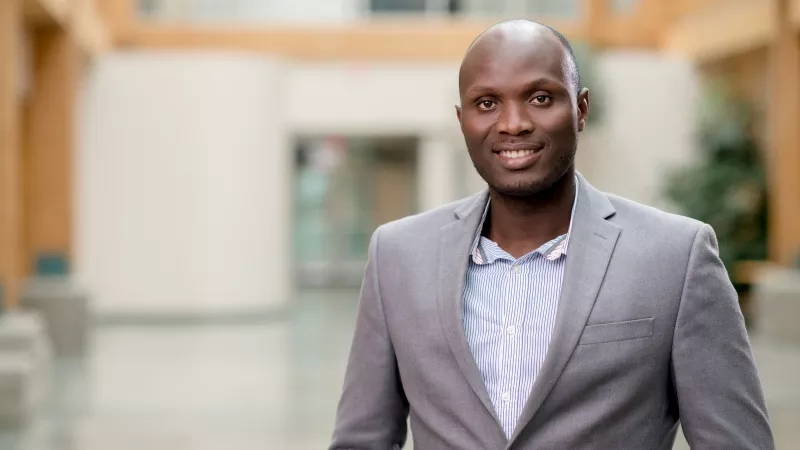Making engagement meaningful
Global and International Studies Associate Professor Dr. Nathan Andrews received a Social Sciences and Humanities Research Council Insight Grant to examine if companies in the natural resources sector are engaging in meaningful consultation, both in the Global South and the High North.

Public consultation. Meaningful engagement. Social license.
The dialogue concerning how resource extraction companies deal with the community is commonplace, but what does it mean to the people companies are consulting with and engaging?
New funding supports Global and International Studies Associate Professor Dr. Nathan Andrews as he examines how these engagement processes are playing from the perspective of the grassroots stakeholders.
“We perceive public participation as crucial to the effective and equitable management of social and economic benefits from resource extraction,” Andrews says. “Yet, in practice, extractive industries often fail to achieve meaningful engagement in the eyes of community members, despite extensive participation that appears to meet national and international standards.”
Andrews received a Social Sciences and Humanities Research Council (SSHRC) Insight Grant for his project Meaningful Stakeholder Engagement in Resource-Rich Communities: Comparative Cases from the Global South and High North. He will look at case studies in four countries: Ghana and Chile, representing the Global South, as well as Canada and Norway, representing the High North.
“These are resource-rich countries that are leaders in the global extractive industry,” Andrews says. “In each country, we will select two field sites – one with a company with a good reputation for consultation and another with a company with a weaker reputation for consultation.”
The approach allows Andrews and his research co-investigators Dr. Mark Stoddart from Memorial University of Newfoundland and Labrador and Dr. Paul Haslam from the University of Ottawa to reach general conclusions about the relative importance of legal frameworks for consultation compared with corporate practices for building meaningful engagement with stakeholders.
“By looking at different sites in all four countries, it will allow us to assess whether more or less meaningful consultation does indeed map according to a North-South divide,” Andrews explains.
The project has three main objectives. Researchers will analyze how national legal regimes and corporate protocols interact to produce consultation processes that may create barriers to substantive consultation. They will seek to understand how communities interpret stakeholder engagement by extractive companies. They will also investigate local engagement practices that can improve meaningful participation and inclusion of marginalized groups, such as youth and women.
The project also includes seven collaborating researchers, Drs. Karin Buhmann (Copenhagen Business School), Rajiv Maher (EGADE Business School), Ibironke Odumosu-Ayanu (University of Saskatchewan), Anna-Sofie Skjervedal (Public participation expert, Greenland), Elizabeth Anne Johnson (Queen’s University), Nancy Yáñez (University of Chile) and Penelope Simons (University of Ottawa).
Andrews says UNBC is well suited to lead this research because of its location in northern B.C., where many of these conversations about meaningful engagement are taking place. He also credits UNBC’s participation in the University of the Arctic, an international network of universities, colleges and other research institutions committed to addressing challenges related to Arctic people and communities.
“Being part of such a network provides cross-thematic learnings with other UArctic research projects and extends our avenues for knowledge mobilization,” Andrews says.
The SSHRC grant, worth $291,579 over five years, will help support Andrews’ research as well as four graduate students, including two Master of Arts students at UNBC.
“Student training and mentoring is very important to us and we have therefore allocated over 60 percent of the grant money to support such efforts,” he says.